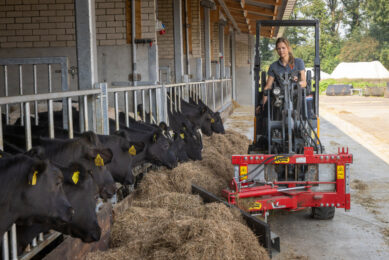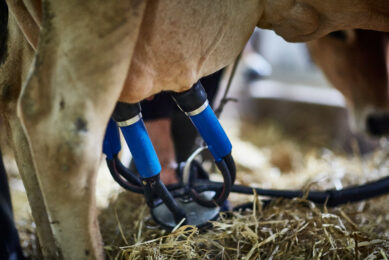UK: Calls for better regulations around milk contracts

Changes to regulations to stamp out bullying and abusive practices around milk contracts are needed across the UK dairy sector, according to one independent charity.
The Food Ethics Council has been looking at the fairness of the rules governing the dairy sector and whether they are a block on shifting to dairy systems that are fair to people, planet and animals.
Dairy farmers in weakend position
In its latest Food Policy on Trial event it spoke to Welsh dairy farmer, Abi Reader, who said she was given a matter of minutes to read and sign a contract to sell her milk, with the processor looking over her shoulder.
While the perishability of milk on-farm is not something immediately avoidable, it is other elements of the relationship between milk producers and buyers in the UK that appear to put farmers in a weakened position.
“We’ve got exclusivity. As dairy farmers, the majority of us have to send our milk only to one processor. Then you add into that discretionary pricing, so you know that the person buying has the option to change their price almost on a daily basis, if they’re not compliant with a voluntary code. If you put the 2 of those together, along with, say, a long notice period, then you’re really not a flexible business,” she said.
The Food Ethics Council’s Dairy Project has been working with farmers to accelerate the shift to dairy systems that are fairer and it has been asking whether supply chain and contractual relationships are a block on positive change.
Judge dairy regulations
It put together a panel at the recent Oxford Real Farming Conference to judge if dairy regulations are fit for delivering dairy systems that are fair. While much of the media focus has been on milk prices, the discussion heard how, for farmers, price came second to certainty.
Rebecca Mayhew, who runs a dairy herd in Norfolk, said the lack of value attached to milk by processors and supermarkets was the root cause of some of the sector’s problems. “The first thing that jumped out in my mind (when thinking about a new milk code) is that isn’t it shocking that we’re having to have this argument over fairness? How is it that we’re having to have an argument over the fact that dairy farmers should not bear the brunt of a price drop or not being able to sell milk during the Covid pandemic? Only in farming do we produce something for someone else with so little certainty of covering the cost of production.”
We urgently need properly enforced regulation to stamp out bullying and abusive practices in the dairy sector.
Bronwen Percival, cheese buyer for Neal’s Yard Dairy, said processors were caught up in a global price trap: “These are market forces that are being applied brutally across the board. Of course, if a processor is hoping to compete selling to supermarkets and selling to where they need to sell their goods, obviously, they need to be price competitive. Again, completely related to the fact that what they’re selling is a complete substitutable commodity.”
To escape the global commodity price trap requires stepping away from the commodity markets – with, for example, a branded cheese product – but that is not a quick decision for most producers locked into their contracts.
Reader, chairman of the NFU Cymru Dairy Board, said: “Handing your notice could be 3 months, but some farmers have to give 12 months’ notice. And even then, they could only give that notice on a certain day of the year. So, if you didn’t hand your notice in on that date, then you’d have to wait until the same date the next year before you could give your 12 months’ notice. Its bullying, total bullying,” she said.
Vicki Hird, head of farming at Sustain, said there needed to be a code across the whole supply chain: “We need statutory supply chains, codes, that are enforced and that stop abusive practices in the supply chain. We’ve got deeply held attitudes, culture and norms, and deeply held buyer habits, embedded supply chain practices and business models that need challenging.”
Speaking at the end of the session, Dan Crossley, Food Ethics Council executive director, said it was clear that the dairy sector needed better regulation: “We urgently need properly enforced regulation to stamp out bullying and abusive practices in the dairy sector. We also need proper support to provide dairy farmers new routes to market, including direct selling, plus incentives for those wanting to transition to fairer and more ethnical dairy.”
Join 13,000+ subscribers
Subscribe to our newsletter to stay updated about all the need-to-know content in the dairy sector, two times a week.










